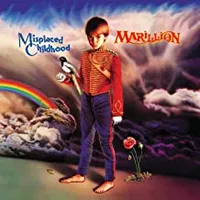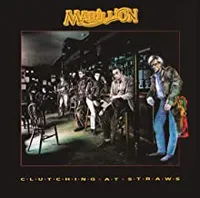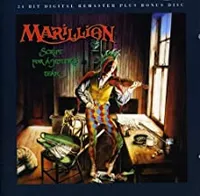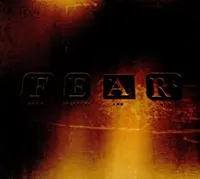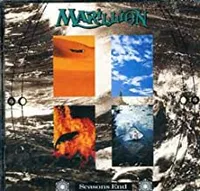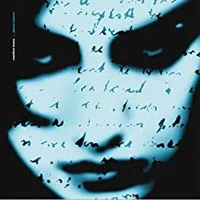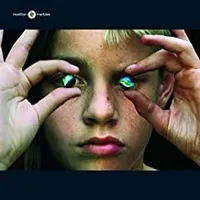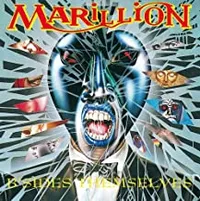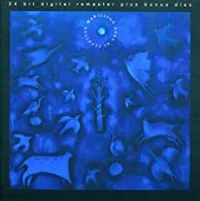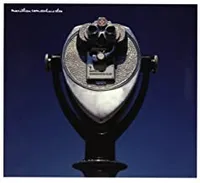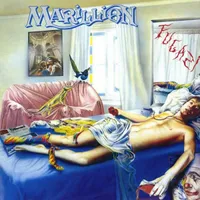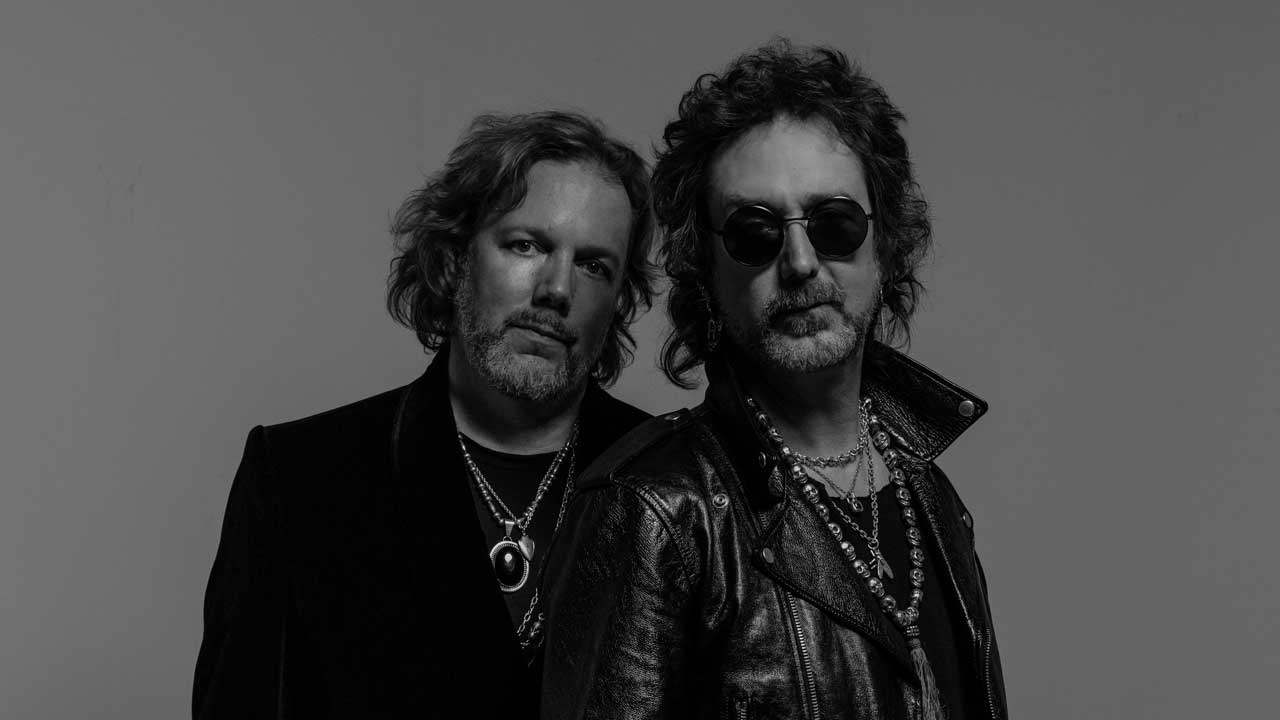From debauched prog revivalists to pioneers of the internet age: The Marillion albums you should definitely listen to
Since picking up the progressive rock baton from Genesis in the 80s, Marillion have recorded one of prog’s most impressive catalogues, and these are their best albums
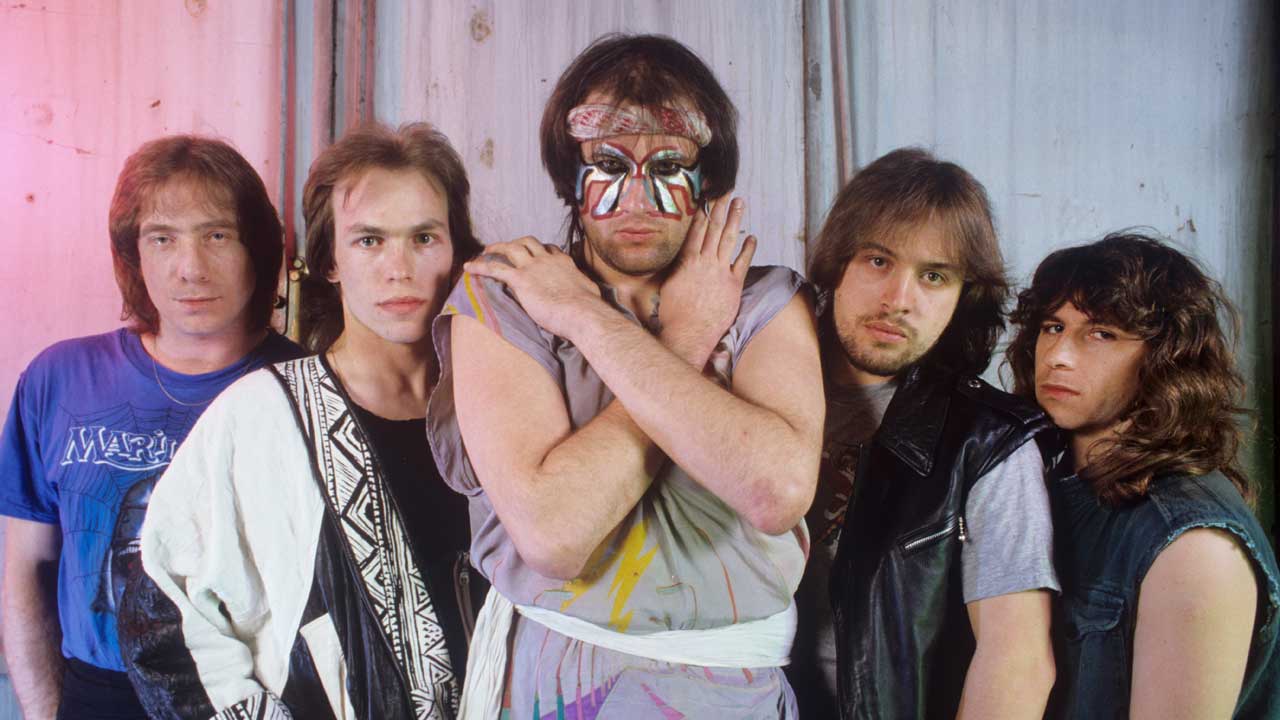
If progressive rock bands are supposed to be boring, nobody told Marillion. The making of their classic album Misplaced Childhood – in early 1985, at Berlin’s Hansa Studios – was effectively one almighty bender. Singer Fish led the debauchery, blowing his wages on hookers, sampling heroin for the first (and last) time, stripping naked in a bar to win a bet, crashing a car in a race round the city, and throwing bricks over the Berlin Wall in an attempt to set off landmines.
Marillion might have been inspired by the music of Genesis and Yes, but they could party like Guns N’ Roses. Formed in Aylesbury, Buckinghamshire in 1979, the band were originally named Silmarillion after a posthumously published work by JRR Tolkein.
The name was shortened in 1981, the same year that charismatic Scotsman Fish (born Derek William Dick) joined the group. After signing to EMI the following year Marillion released four studio albums – all of them UK Top 10 hits – before Fish left for a solo career in 1988. His replacement Steve Hogarth, formerly of The Europeans, has now been Marillion’s frontman for over three decades.
Yet Hogarth will always be considered ‘the new guy’, such was the impact of the music that Marillion made with Fish, especially Misplaced Childhood and its hit single Kayleigh, a song which had the singer credited for inventing an original name. As he recently commented: “I’ve got used to signing autographs for 13-year-old Kayleighs.”
In the Fish era, Marillion were standard bearers for progressive rock, but with Hogarth the band have been progressive in the broadest sense. Their music has evolved far beyond those primary influences, and after being dropped by EMI in 1996 Marillion created a new, internet-based business model that has seen them thrive as an independent cottage industry. Eight years before Radiohead sold In Rainbows exclusively online, Marillion financed their album marillion.com by inviting 30,000 fans on their database to pre-purchase the album before it was even recorded.
It’s ironic that a band once derided for sounding like the dinosaurs of 70s rock should prove to be pioneers of the internet age. But this forward thinking has secured Marillion’s future: 2016's Fuck Everyone and Run (F E A R) was a new creative peak – and a Top 5 album in the UK – and the following year the band sold out London's iconic Royal Albert Hall in minutes. An Hour Before It's Dark, released in 2022, saw the band maintaining the momentum.

Misplaced Childhood (EMI, 1985)
In the finest progressive rock tradition, Marillion’s greatest work is a concept album. It started with an acid trip: an hallucinating Fish envisioned a child in soldier’s uniform, and from there flowed a narrative that ranged from the personal (old love affairs, rock star ennui) to the global concerns of the Cold War.
It inspired a brilliant ensemble performance from the band. And, despite initial concerns from EMI over the dated ‘concept album’ format, Misplaced Childhood was a huge success. Their only No.1 album, it produced two hit singles in Kayleigh and Lavender. Artistically and commercially, Misplaced Childhood is Marillion's Dark Side Of The Moon.
Clutching At Straws (EMI, 1987)
“All the songs were drawn from inspiration on the road or from bars,” said Fish of the album that proved to be his last with Marillion. Consumed by booze and drugs, the singer became alienated from the rest of the band, no puritans themselves.
But from his stated position – that lonely place “at the end of the bar” – Fish wrote the finest lyrics of his career. The cocaine itch in Hotel Hobbies, the transparent revelry of Incommunicado, the desperate homesickness in Sugar Mice, all were brutally honest entries in the diary of a lost soul. The music was wonderfully atmospheric and beautifully weighted.
Script For A Jester's Tear (EMI, 1983)
Released at a time when Genesis were having mainstream pop hits, Marillion’s debut was a homage to the Genesis of old. Four of the six tracks stretched over eight minutes, incorporating smart-arse time signatures, while Fish adopted the stagy mannerisms of Peter Gabriel to deliver his wordy poetry.
Garden Party was an uproarious satire of class snobbery, Forgotten Sons a searing indictment of the British army’s presence in Northern Ireland, the epic title track was a frank admission of romantic failure. At a stroke, Fish was a cult hero and Marillion were Top 10.
F E A R (Fuck Everyone And Run) (earMUSIC, 2016)
At times, FEAR (Fuck Everyone And Run) suggested that Marillion had taken all the most emotionally potent and fervently dynamic moments from this line-up’s 27 years and moulded them into some new, exponentially emboldened form.
From wonderfully fluid opener El Dorado to the incensed sprawl of The New Kings, FEAR is both deeply moving and quietly thrilling: the sound of a veteran band completely engaged with their music, their world view and their reasons for giving a shit.
Marillion without Fish? It didn’t seem right. Many diehard Marillion fans were sniffy about Steve Hogarth: he’d been in pop bands. But Seasons End put the doubts to rest. Hogarth had his own style, more naturally melodic than Fish, and if his lyrics (co-written with friend John Helmer) lacked his predecessor’s idiosyncratic edge, there was a sly dig at Fish in The Uninvited Guest.
Musically, Seasons End was a subtle progression, peaking with the elegant Easter and a green-themed title track developed from Beaujolais Day, a song the band demoed with Fish in 1988. Seasons End charted at No.7.
Sounds That Can't Be Made (earMusic, 2012)
Famously, Marillion’s self-financing model was cited by writer and social psychologist Malcolm Gladwell as the moment when a new proposition for the music industry began to emerge. He would be pleased to know that 17 albums into their career, the band were still bursting with ideas.
The songs drip with longing and regret, and no one delivers those emotions quite like Marillion. In 2012, Sounds That Can’t Be Made was voted Album Of The Year by readers of Prog magazine, also finishing in third place in the corresponding writers’ chart.
After 1991’s pop-oriented Holidays In Eden alienated some long-standing fans, Marillion went back to their roots with Brave – a concept album, no less – inspired by a news story about a young woman who had been picked up by police on the Severn Bridge and either did not know her identity or refused to reveal it.
“I thought it was a great first page to a mystery story,” said Hogarth, who subsequently constructed a “fictional documentary” of the woman’s life. This weighty subject matter was matched by some of the most complex and emotionally charged music of Marillion’s career.
Marbles was conceived as a double album, but even as a single CD, minus four tracks, it’s stunning. Thirteen-minute opener The Invisible Man is a modern progressive rock classic, combining the lyricism of Wish You Were Here-period Floyd with the dark ambience of Massive Attack.
There are fine songs throughout, with You’re Gone and Fantastic Place both sounding like a subtler U2. The title track is full of quintessentially English black humour. And to finish, there’s another brilliant extended piece, Neverland.
B'Sides Themselves (EMI, 1988)
With the notable exception of Oasis’s The Masterplan, B-sides albums are mostly rubbish. Marillion’s, however, is mostly good, and includes two of the band’s best-loved cult-classics. Market Square Heroes was actually an A-side, the debut single, left off the first album but always a live favourite. The B-side to it was Grendel, a 17-minute, Rush-style epic based on the Anglo-Saxon poem Beowulf.
In honour of this song, the band invented the lethal ‘Grendel’ cocktail, coloured bright green by crème de menthe, heavily laced with various spirits, and – alarmingly – always served by the pint.
Marillion went straight for the mainstream with the second album of the Steve Hogarth era, and in truth the results were mixed. The rockier songs – Holidays In Eden, This Town – were uninspired, and The Party, Hogarth’s study of lost innocence, lacked the incisive quality of Fish’s Warm Wet Circles.
On the plus side there were several fine songs that benefited from Christopher Neil’s slick production Three singles were released – Dry Land, No One Can and the U2 rip-off Cover My Eyes (Pain And Heaven) – but none reached the Top 30. Clearly Marillion were not cut out to be pop stars.
Not many bands can still cut it when they’re 25 years into their recording career. Marillion are one of the few who can. Their 14th album received widespread acclaim. It was quite a turnaround for a band whose profile had slipped so low since the mid-90s that Steve Hogarth admitted, only half-jokingly: “Most people thought we’d split up in the 80s!”
Somewhere Else features some of the most beautiful songs the band has ever recorded: Faith, Thankyou Wherever You Are, and the expansive title track. “Marillion deserve a fair hearing,” said one critic. Oh, the irony.
...and one to avoid
You can trust Louder
According to Fish, Marillion’s second album was “aptly named”. ‘Fugazi’, meaning ‘all fucked up’, was an expression used by the US military in Vietnam. The wasted rock star on the cover accurately reflected Fish’s own lifestyle, and his lyrics documented a conflicted attitude towards women, from jealousies in a long on/off relationship (Emerald Lies) to the ‘who’s using who?’ question of groupies (She Chameleon).
Ultimately, Fugazi suffered from classic ‘difficult second album’ syndrome. The band had years to write the first album and weeks to write the second, and it shows. It’s the darkest, edgiest album of the band’s career.
Sign up below to get the latest from Classic Rock, plus exclusive special offers, direct to your inbox!
Freelance writer for Classic Rock since 2005, Paul Elliott has worked for leading music titles since 1985, including Sounds, Kerrang!, MOJO and Q. He is the author of several books including the first biography of Guns N’ Roses and the autobiography of bodyguard-to-the-stars Danny Francis. He has written liner notes for classic album reissues by artists such as Def Leppard, Thin Lizzy and Kiss, and currently works as content editor for Total Guitar. He lives in Bath - of which David Coverdale recently said: “How very Roman of you!”
- DML
- Dom LawsonWriter
